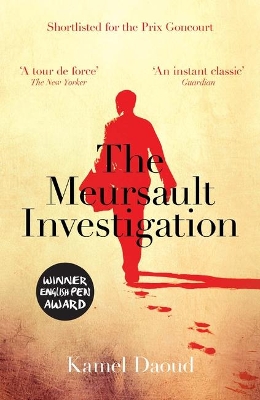Reviewed by Michael @ Knowledge Lost on
Kamel Daoud’s response to The Stranger is basically saying that life is not absurd, it has meaning. Taking a life has consequences and execution is not simply a life for a life. Meursault killing the Arab had a big impact, and never referring to him by name allowed Camus to focus his story but at the risk of missing the bigger picture. So seventy years later, well after Algeria has declared their independence from France, the story of Meursault is still a topic of discussion.
First of all, the death of Musa has an impact on the life of Harum and his family. The Meursault Investigation starts off exploring the life of Harum and his mother and how the death of Musa effected them. The novel spirals out, first looking at the effect it had on Harum, then his mother and family and then finally Algeria. This may come across as repetitive but I think it was important to understand the impact.
I watched a lecture by Daoud that talks about The Stranger and comparing it to Robinson Crusoe. This is an exploration into post-colonialism; Meursault meets someone who was different to him and kills him. Robinson Crusoe did the same thing to Friday, just not physically; he forced him to convert to his idea of civilisation. That meant changing the way his acted, dressed and most of all his religious beliefs. The fact that Meursault killed an Arab on the beach could be symbolic of the island. If you follow this train of thought, The Meursault Investigation turns into a very complex philosophical argument, not only against The Stranger but the opinions of Western society (especially France) towards the raise of Islam.
The Meursault Investigation is an angry novel with some very deep philosophical ideas embedded into the pages. Published originally in French (translated by John Cullen) this novel evoked similar reactions for me as Submission by Michel Houellebecq in the way it explores France’s reaction to Islam. I understand people’s criticism about repetitive in The Meursault Investigation but I feel like it was necessary as Daoud needs to keep circling back to the death of the Arab and exploring how it affected everyone. This is the butterfly effect and I enjoyed every moment of this novel.
This review originally appeared on my blog; http://www.knowledgelost.org/book-reviews/genre/literary-fiction/meursault-investigation-kamel-daoud/
Reading updates
- Started reading
- 24 August, 2016: Finished reading
- 24 August, 2016: Reviewed
